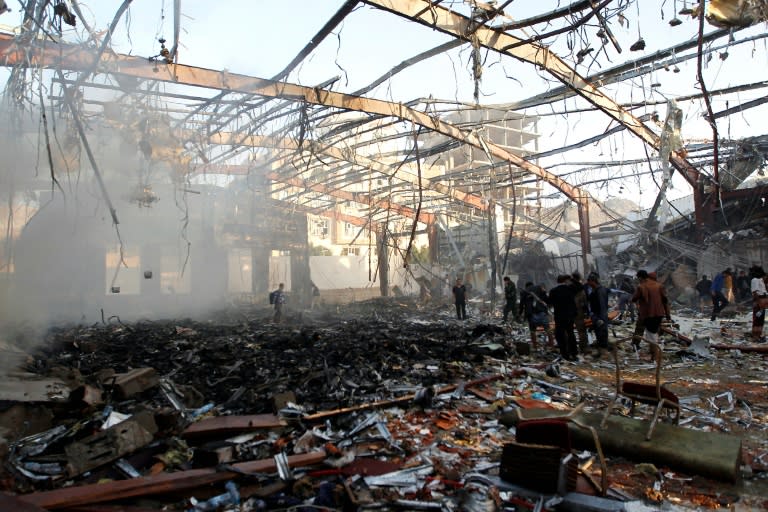UN urges renewal of Yemen truce as fighting rages
The UN envoy for Yemen called Saturday for the renewal of a 72-hour ceasefire in the country, though fighting has raged on between Shiite rebels and government forces despite the truce. The ceasefire took effect just before midnight (2100 GMT) on Wednesday to allow aid deliveries in Yemen, where the war has killed thousands of people and left millions homeless and hungry, and ended officially at midnight Saturday. "With the 72-hour Cessation of Hostilities in Yemen coming to an end, the United Nations Special Envoy for Yemen Ismail Ould Cheikh Ahmed urges all parties to agree to its extension for at least another renewable 72 hours," said a statement posted on the envoy's Facebook page. Ahmed said the ceasefire was "largely holding despite reported violations from both sides in several areas." "We noted over the last days that food and humanitarian supplies were provided to several affected neighborhoods and that UN personnel were able to reach areas that were previously inaccessible. We would like to build on this and we aim for a wider outreach in the next few days," he added. Despite the ceasefire, fierce gun battles have raged between the Iran-backed Huthi rebels and pro-government forces along the border with Saudi Arabia over the past two days, according to military officials. Warplanes from the Saudi-led coalition fighting in support of President Abedrabbo Mansour Hadi also bombed suspected Huthi rebel missile launchers east of the capital Sanaa late Friday, a military official said. The air raids came after Patriot missiles shot down two rebel missiles on Thursday over Marib, east of the rebel-held capital. The UN envoy said Friday he was liaising with the parties in an attempt to extend the ceasefire in order "to create a conducive environment for a long-lasting peace" in Yemen. He met late Friday with Yemen's Vice President Ali Mohsen al-Ahmar in Riyadh, Yemeni state media reported. Ahmar said government forces were "exercising restraint" and stressed that there were orders to "abide by the truce and respect UN efforts". But he accused the rebels of 449 violations within 24 hours after the ceasefire took effect. Rebel-controlled media, meanwhile, accused the coalition of conducting air strikes across the country, including in the provinces of Sanaa, Saada and Jawf in the north, and Shabwa in the south. - Drone strike - A senior rebel, Hassan al-Sharafi, was killed in border clashes on Friday night in Saada province, the fiefdom of the Huthis, military officials said. The rebels seized two hills in the Alb border area from government forces who had previously advanced from Saudi Arabia, a military official said. Nine other rebels and four government soldiers were killed in clashes Saturday on the western outskirts of Midi, a northwestern town close to the Saudi border and the Red Sea coast, military officials said. The fighting erupted when troops advanced towards Midi in an attempt to recapture it. It is the sixth ceasefire attempt since the Saudi-led coalition intervened in March last year to support Hadi's government after Huthis overran much of the impoverished country. Nearly 6,900 people have been killed in the conflict, more than half of them civilians, while an additional three million are displaced and millions more need food aid. Meanwhile, five suspected Al-Qaeda militants including a local chief were killed overnight Friday in a suspected US drone strike in Marib province east of Sanaa, a security official said. They were in a vehicle that was targeted in the Wadi Obeida area. Washington is the only government to operate drones over Yemen, but the United States rarely releases statements on its long-running bombing campaign against the country's powerful Al-Qaeda branch. The United States considers Al-Qaeda's Yemen-based franchise, Al-Qaeda in the Arabian Peninsula, to be its most dangerous. On Tuesday, eight Al-Qaeda suspects were killed in a similar drone strike in south Yemen.




